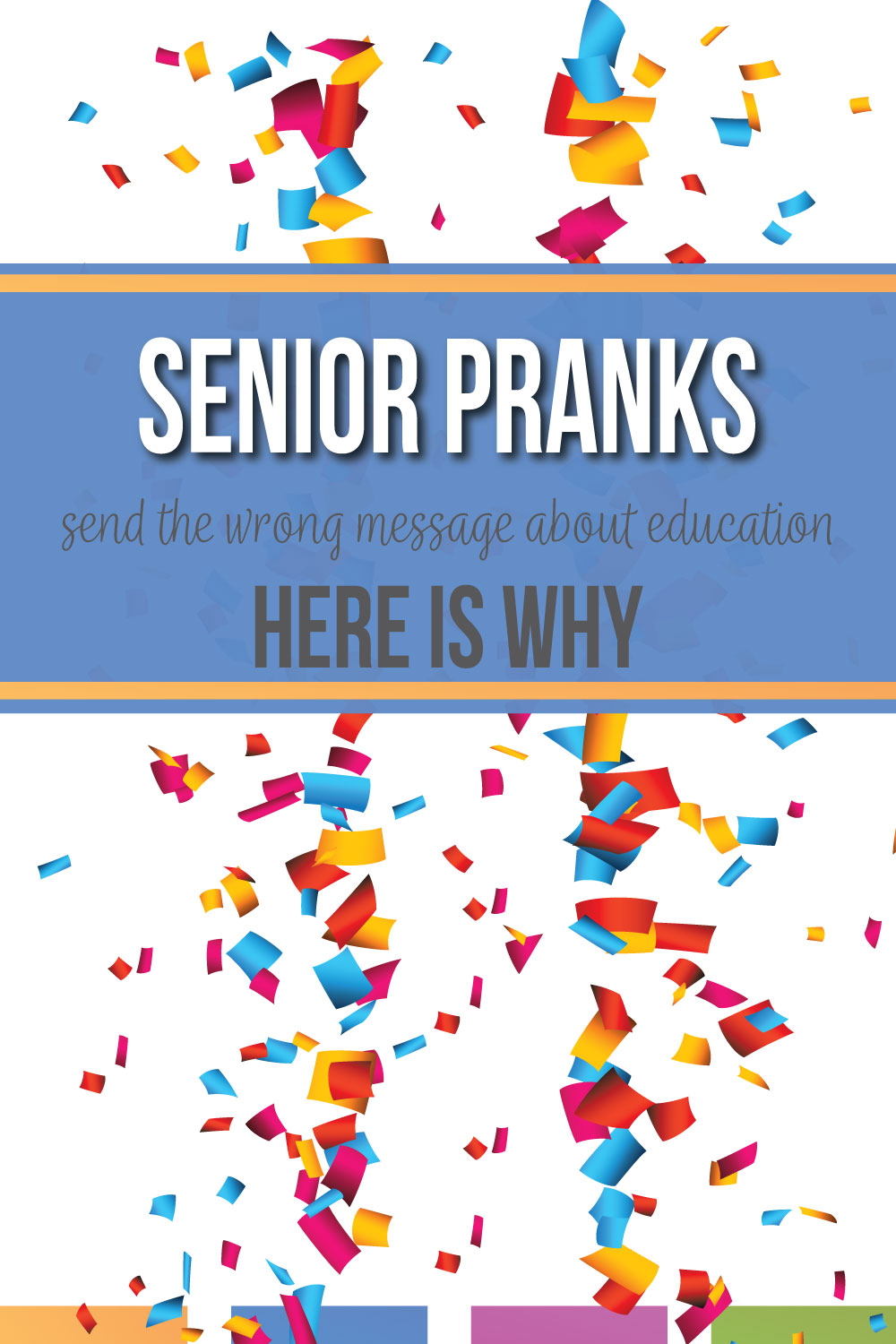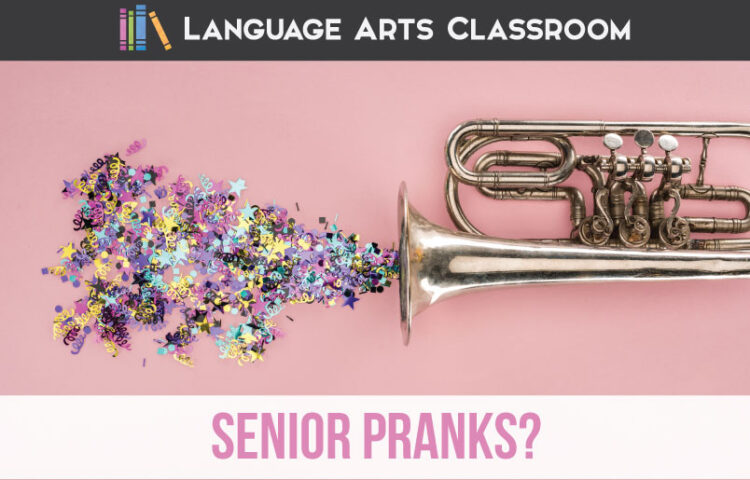Senior pranks convey the wrong message about our school system.
I don’t consider dress-up days (Hawaiian shirts) or matching bracelets senior pranks. Those activities are typically coordinated with the school, similar to homecoming events.
A senior prank is an event, a trick often done without adults. It is rarely done with the entire class. Instead, senior pranks provide one more opportunity to exclude students who feel they don’t belong to the school. Senior pranks are a tradition that should be retired. Reflecting on practices in education, I find myself thinking about senior pranks and the messages they send educators and younger students.
Welcome to ELA Today, a monthly chat where the authors of Reading and Writing Haven and Language Arts Classroom cover different ways of approaching common decisions in the ELA classroom.
I completed a long-term maternity leave a few years ago. On the seniors’ last day, my direct boss asked me to get a pair of scissors and to stand out in the hall with the other teachers.
The previous evening, seniors had dispersed balloons (among other things) everywhere. If latex touches me, my skin peels or my eyes swell closed.
My immediate boss didn’t know that, and I couldn’t touch any balloons and cut them as every other teacher wasted their time doing so. It made me think, though. My latex sensitivity started in high school with the use of makeup applicators and bandaids; were some of my students bothered by these latex balloons?

What about other senior pranks that I’ve witnessed? Clear gel or aloe on stairs, clear kitchen-wrap blocking stairs, and knives/forks inconspicuously stuck in the ground? My slight involvement in this senior prank made me think: are these silly and fun events, or do senior pranks illustrate a larger problem?
Teenagers make dangerous and silly decisions.
On one hand, teachers and adults tell teenagers that their brains are not done growing. Their brains do not make decisions as adults’ brains do. When we adults tell them this, we have research on our sides. Why would adults encourage seniors to “prank” their peers or school?
This idea is evident with senior pranks. I’ve seen students climb to the roof of the school building (in the dark of night), set off stink bombs and upset their peers’ asthma, destroy school property, and harm animals.
Students do not think through pranks, and some begin to regret their participation but still follow through with the prank. As adults, we should send a message that senior pranks are wrong, and then fewer students will be in those situations. Basically, we teachers should not change our approach as students start to graduate. We should remain adults.
Plus, we can’t be role models and adults “part-time.” We can’t expect our students to behave responsibly all the time, except for this one time at the end of their senior year. Acceptance of senior pranks sends mixed messages to the entire student body.
A terrible legacy.
Who cleans up senior pranks? It is often a liability for seniors to clean up a dangerous situation—stacked tables, baby oil, moved cars. It breaks my heart to see the maintenance staff wasting time (and taxpayer dollars) cleaning up.
What do these senior pranks show the underclassmen? That when you finish a successful endeavor, you should celebrate with a mess? with danger? with sneaking around? Seniors should celebrate, but a senior prank should be beneath our graduating youth. Many times, senior pranks border on illegality.
I don’t want my students to celebrate a huge accomplishment with dangerous or illegal activities.
A better legacy would be donating a bench with the class motto or year, planting a tree, burying a time capsule, or hosting a picnic.
Senior pranks are indicative of a larger problem.
I have lived in Illinois my entire life. I want to mention that because education’s purpose and intent is not the same across the states. I think that a few movements, however, happen together. Right now, I see people taking education seriously. Senior pranks are relics; they are soon to be anachronisms. They have no place in our schools.
America has a big choice to make: what image should our society build for its youth? Is school a joke? When our culture honors and supports something, adults and students show their pride. They don’t disparage the institution and employees who worked for four long years ensuring that these very students are ready for the next stage of their lives.
Senior pranks are dangerous and risky. More than the danger, they showcase the wrong attitude that society, teachers, and students should hold about secondary education.
Don’t agree with me? Melissa doesn’t either. Read over at Reading and Writing Haven why she believes senior pranks have their place at the end of year twelve.

